Words by Johanna Harlow
When Jennifer Lee Segale’s regulars show up at her nursery with pictures of their children, they’re not showing off strollers with chubby-cheeked cherubs, but pots harboring leafy green things. Proud plant parents are only natural in Jenn’s line of work. “They tell us, ‘Oh my gosh, you were right. Here’s what happened with this tree or this plant,’” Jenn says. “It’s really fun to hear their feedback on their fails and wins in gardening.”
It figures that Jenn was practically born sucking a green thumb. “I’ve been gardening since I could hold safety scissors,” she relays over the satisfying crunch of gravel underfoot. Weaving through Garden Apothecary’s inventory of watering cans, clay pots, miniature greenhouses and abundance of botanicals, Jenn showcases her thriving plant haven in downtown Half Moon Bay.
Pausing by the gardening tools, Jenn motions at a display of Tobisho pruners and Chikamasa shears: “I don’t bring in anything I haven’t used for either a client’s garden or for my own garden or farm.” She’s referencing Wildflower Farms, where she organically dry farms saffron, lavender and other medicinal plants, not minutes down the road. The definition of a flourishing botanist, Jenn also provides garden design services as well as blends botanicals from her farm into her acclaimed skincare line and more than a dozen organic loose leaf teas. As you might imagine, she’s most at home where the wild things grow.
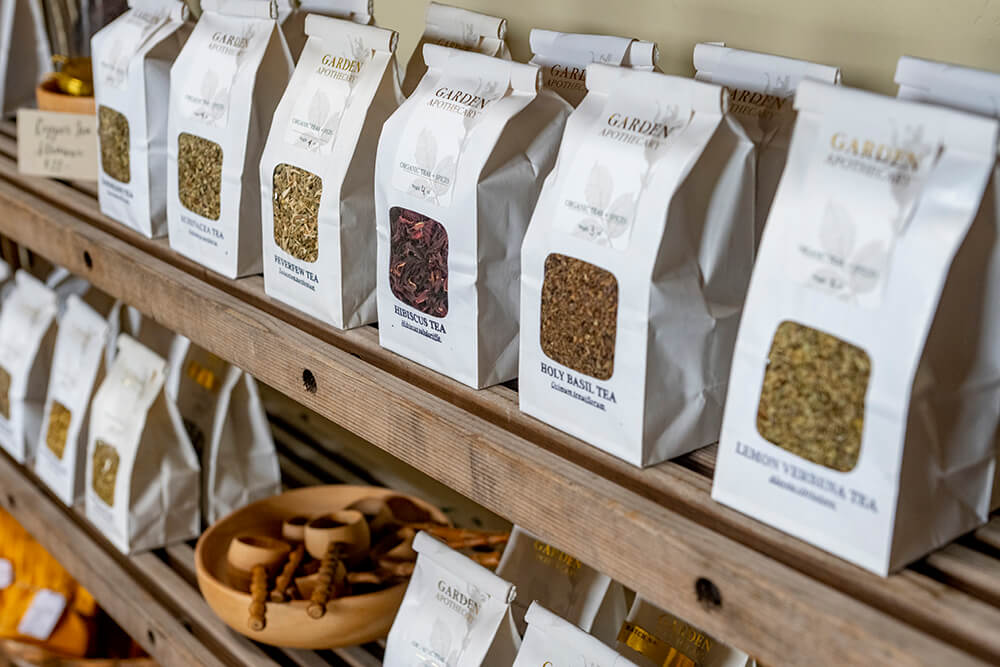
A Botanist’s Roots
Don’t tell anyone, but Jenn isn’t a fan of succulents and air plants. “I can’t clip you, I can’t harvest from you,” she shakes her head critically at a stand of the aforementioned plants (because due to their popularity, she still stocks them). “It’s like watching a pot boil. It’s not as interactive as something like roses, salvias—juicy, yummy perennial flowers.”
A plant she adores? “I’m so in love with lavender: how it grows so minimally, but has such an abundance that you can harvest from. That is such a gratifying plant to work with.” Jenn notes that lavender smells heavenly, attracts bees and butterflies and possesses medicinal benefits. “It really balances out the central nervous system and helps bring you to a more balanced, calmer place.”
Jenn’s foray into organic dry farming began at 16 when she heard about five acres of empty land owned by her school district. Even after she was told, “There’s a bunch of trash and mattresses and computers dumped on it,” she asked if she could steward the property. District officials agreed. “When I was 18, the day after I graduated high school, I went and got a business license to do Wildflower Farms,” she recounts.
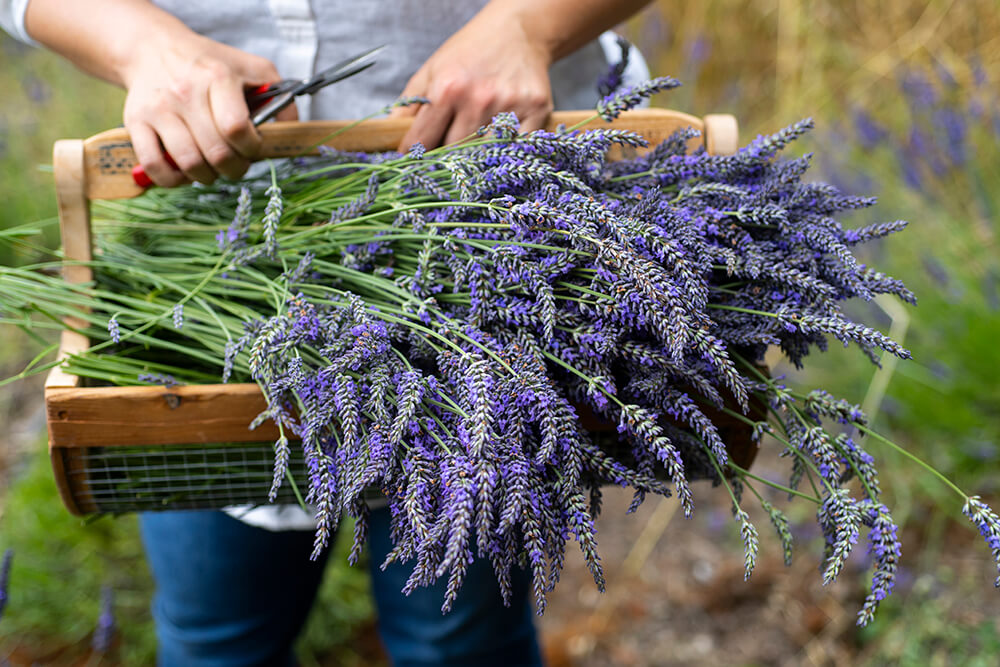
Jenn’s skincare line sprang from her pastime of frequenting farmers markets with her sister and stocking up on botanical products. “I remember buying a rose lotion and thinking, ‘Well, this doesn’t even smell like rose. It’s a synthetic version of it.’” Knowing she could do better, Jenn made her own flower mists, perfumes and body scrubs for her sister and friends—“and you know, as everyone does, getting on Etsy for a minute,” she chuckles.
It was a weekend diversion—until Belize. Initially it was just a trip, Jenn says of her first visit to the tropical country. “But my vacations are traipsing through the jungle and spending time in different communities,” she adds. Captivated by what she discovered, Jenn regularly returned to study ethno-botany in Belize over the next six years—expanding to jungles across Central America to learn about Theobroma cacao (the source of chocolate), vanilla and cardamom. “I learned to approach herbalism and working with plants in a very different way than the Colonial English gardening way,” she says. “It’s really interesting to see how different cultures work with plants, whether it’s for aesthetics or medicinally or spiritually or through just normal everyday use.”
One mindset shift, Jenn says, was focusing less on the yield and more on the quality of the ecosystem and the plants themselves. “When there’s plants that are suffering, you don’t harvest from them. You don’t tax them more,” she explains.
Earthy Luxury
As Jenn applied her travel-gleaned lessons to sugar scrubs and botanical mists, she started gaining recognition. Soon, publications like Vogue, Glamour, Elle and O, The Oprah Magazine were buzzing over her brand. Then, when Jenn approached her late-thirties, she turned her focus to three signature products.
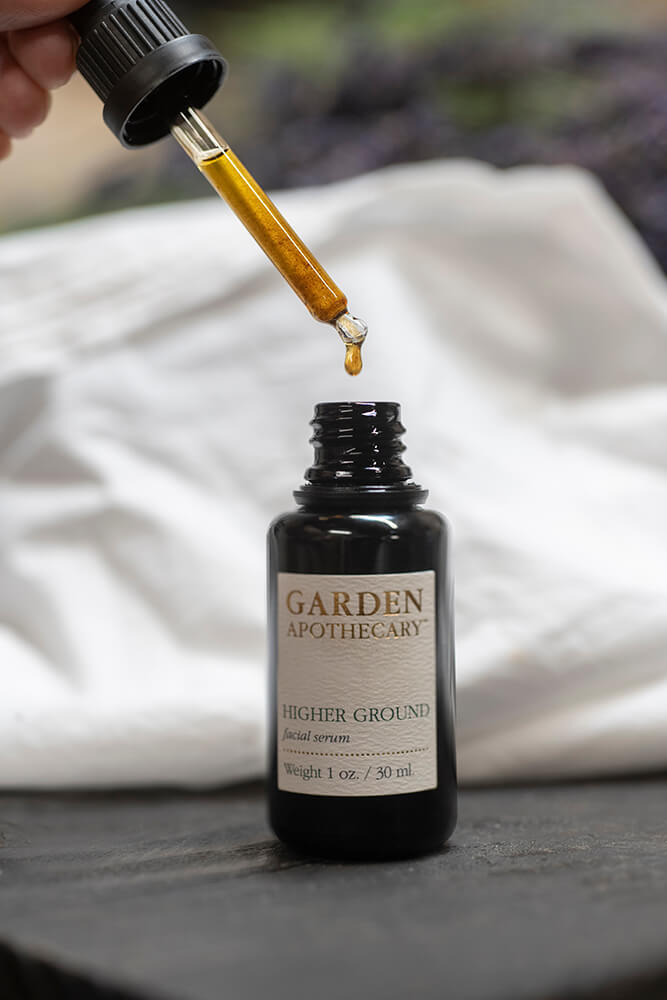
The first of these, Full Bloom Fog, is a toning mist that Jenn describes as “really just a complete love letter to my roses,” containing rose hip, rose petals and even rose leaves. Both Spun Gold, a local honey facial cleanser, and Higher Ground, a highly moisturizing serum with cacao, boast a medley of Wildflower Farm botanicals.
“We use a thread of saffron in every single bottle of Higher Ground,” Jenn adds. “As it’s in the bottle, it keeps infusing and giving some really great benefits that complement the other botanical oils that go into the serum.” Rave reviews confirm she’s on to something—not to mention her own glowing complexion.
Jenn has also cultivated a sizable organic tea collection, ranging from licorice root to lemon balm, mugwort to turkey tail mushroom. Complimentary weekly tea tastings (usually offered Friday to Sunday) provide another enticing reason to stop by. “Mosey around the garden, pick out your plants, do some shopping—and have some hot or iced tea as you’re interacting with plants!” Jenn invites.
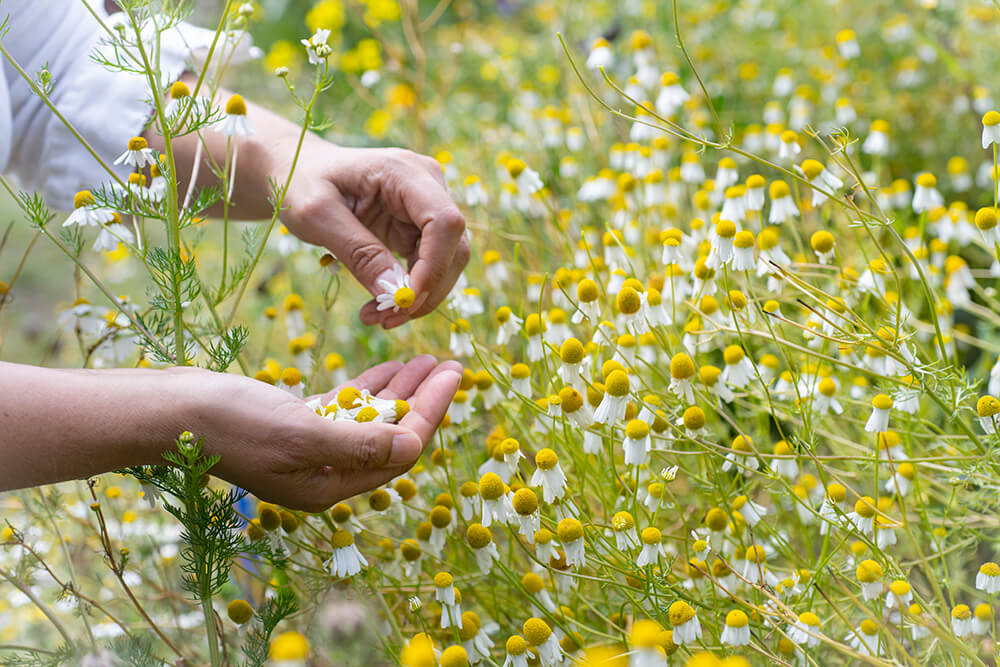
“My agenda is always getting people to grow plants,” she explains. “So we’re always talking about how you can grow your own teas at home and what that looks like. Even if it’s one plant. If it’s mint for your mojito? Great, let’s do it. Let’s grow it.”
A Seasonal Situation
Although Jenn appears to be in charge here, she credits the seasons with calling the shots. “Our items are hyper-seasonal,” Jenn emphasizes. “When we’re making something, we might have it one season and it might vanish the next because things sell out so quickly or because that harvest is over or there’s a crop failure.”
Take for instance, the Half Moon Honey that Garden Apothecary sells to support another local business less than a mile away. “It’s really important to have this season’s honey,” Jenn says, explaining how it can boost your body’s ability to fight allergies during the current year and even strengthen your immune system.
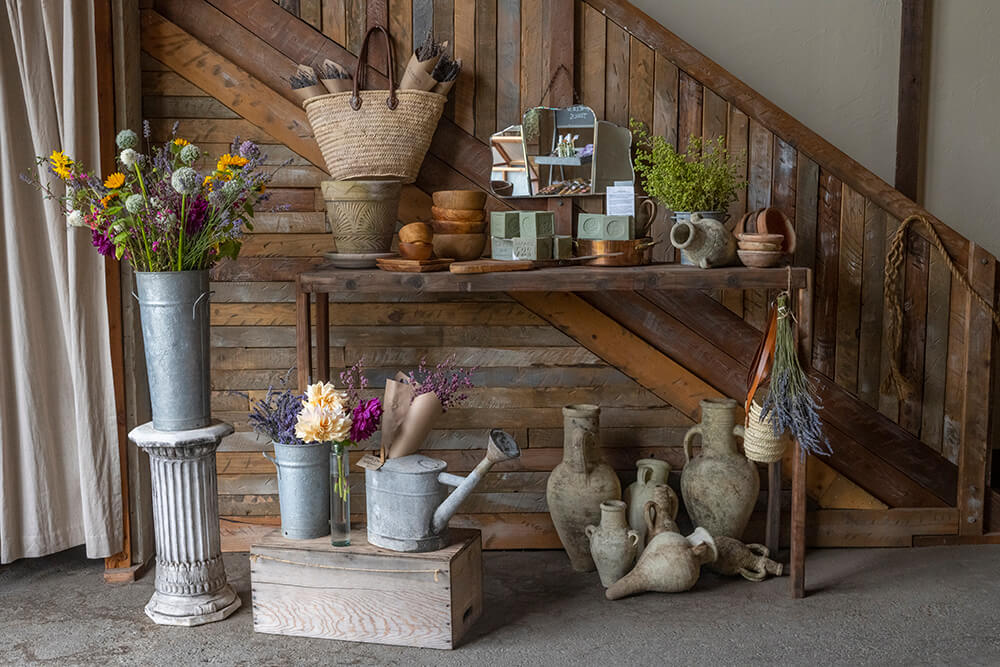
Garden Apothecary’s workshops also track with seasonal bounty. “If I have an excess harvest of something, we’re like, ‘Great, it’s a workshop!’” Jenn laughs. For one previous class, she offered a foraged flower arranging class, blending the latest crop of farm flora with “interesting bold foliage,” pods and branches from the nearby area. “We talk about where you can ethically harvest on the coast side or near where you live or in your own garden—and how to use these items as flower arrangements,” she explains.
“I would love to say they’re on a more regular basis, but they’re not,” Jenn admits of the workshops. “You have to catch us on Instagram if you wanna come to one!”
Only Human
At the end of the day, Jenn hopes to get more people to acknowledge their connection to nature. “We want to be in nature in some way, shape or form because we are nature,” Jenn observes. “It’s only human and natural to want to be physically close to the ocean or the redwood trees.”
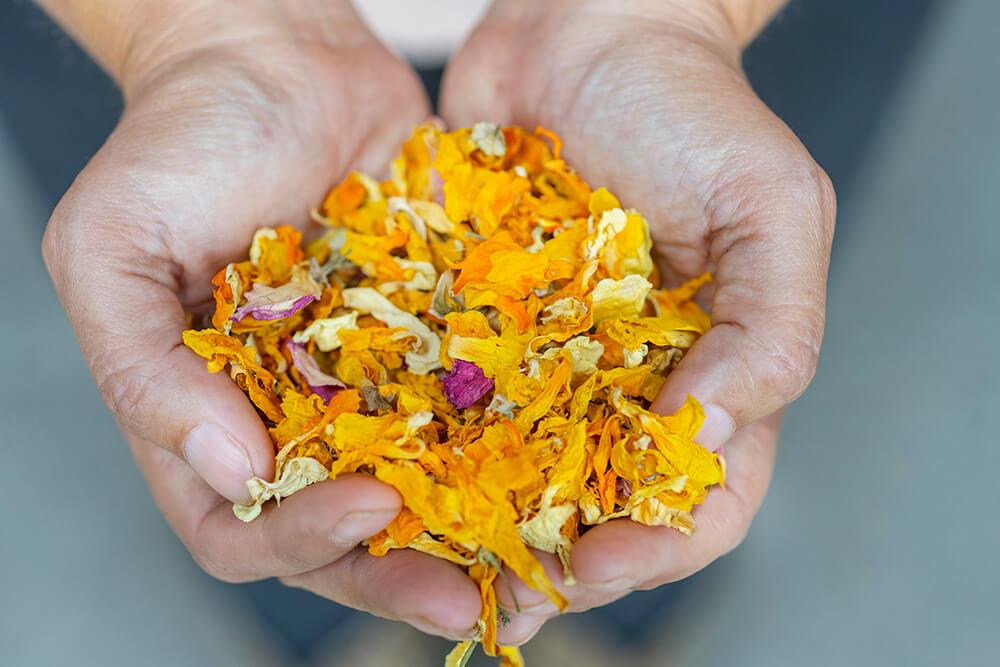
Communing with nature takes many forms, she notes. “Sometimes it’s just taking a really luxurious bath or shower with a product that is gonna treat you right, you know?” Though her favorite approach is a bit more earthy: “I will literally lie in the dirt in the middle of my lavender field and just hang out there and watch the bees flying above me.”
Back at her garden sanctuary in downtown Half Moon Bay, Jenn rests her arm on a stack of potting soil bags. “I think the garden is a way to process so many things, so many emotions—a way to really ground yourself.”


